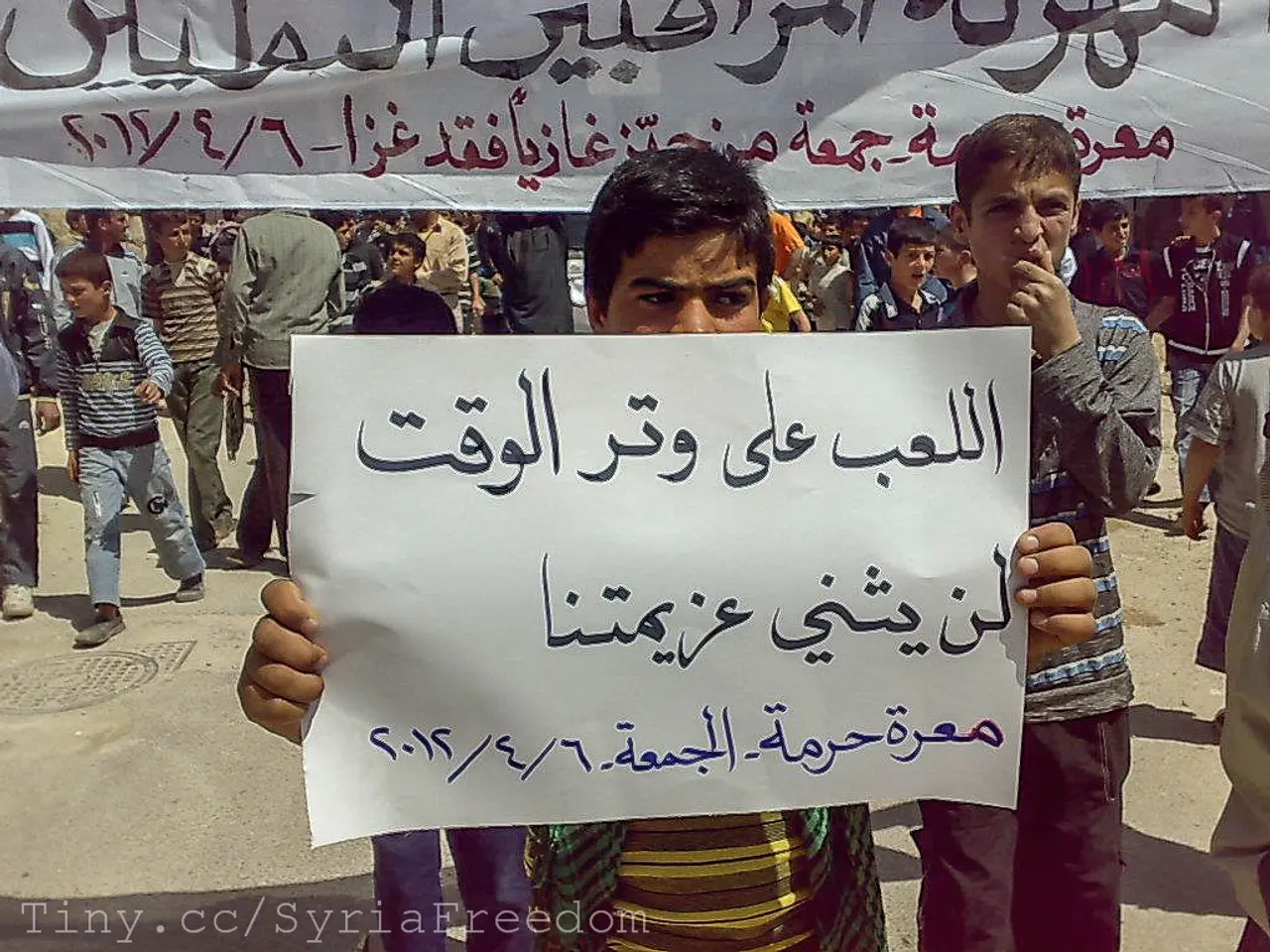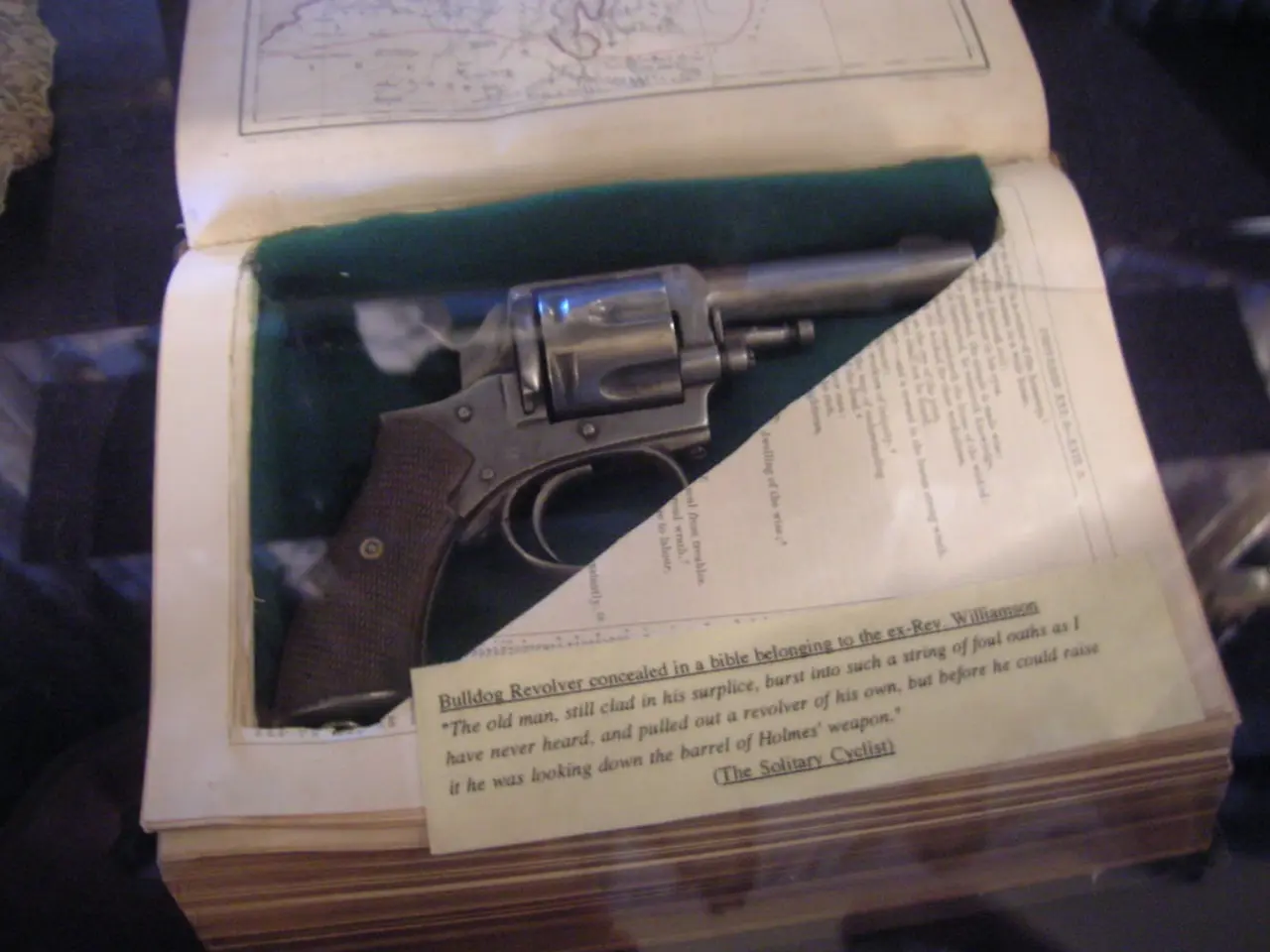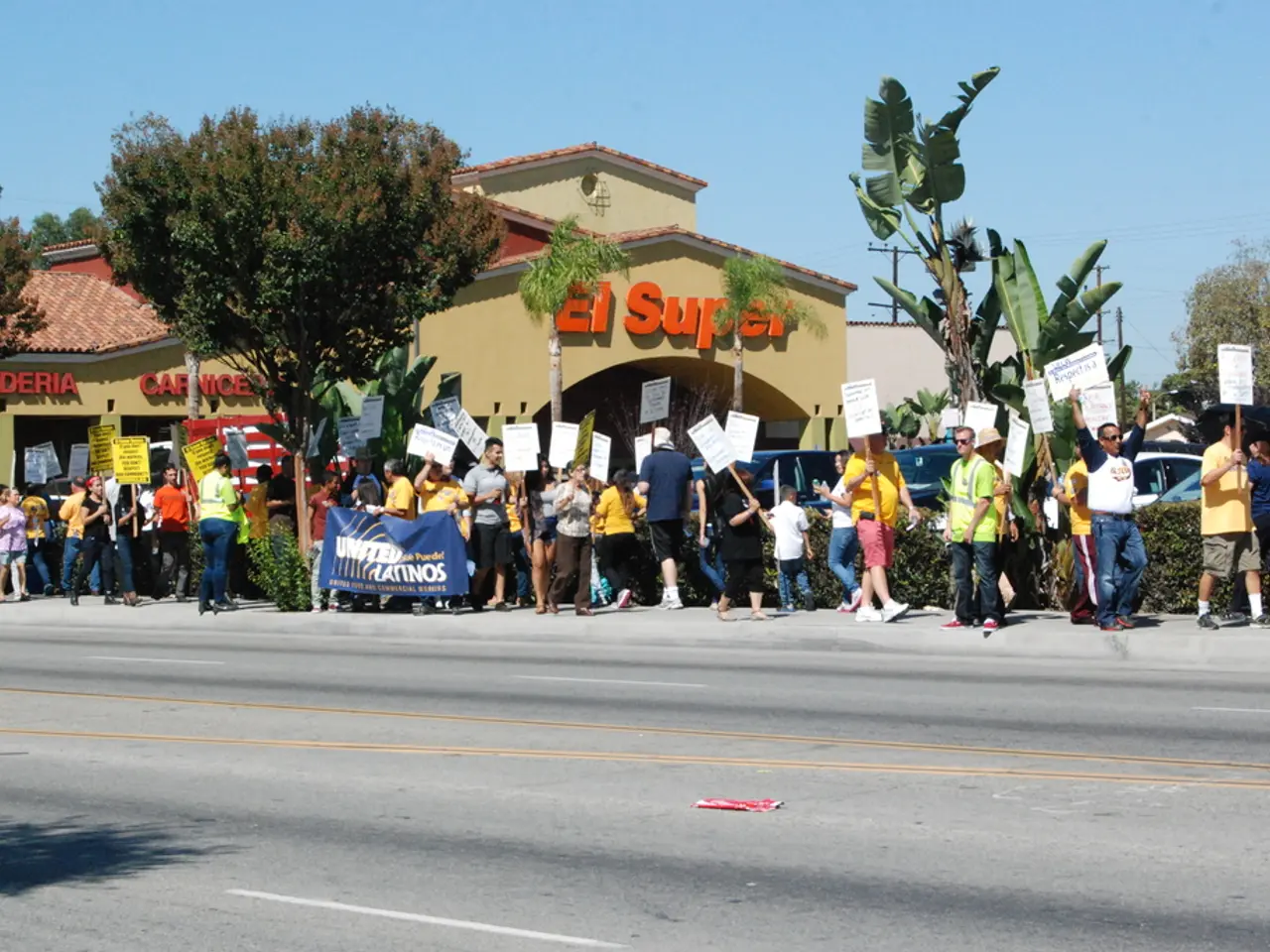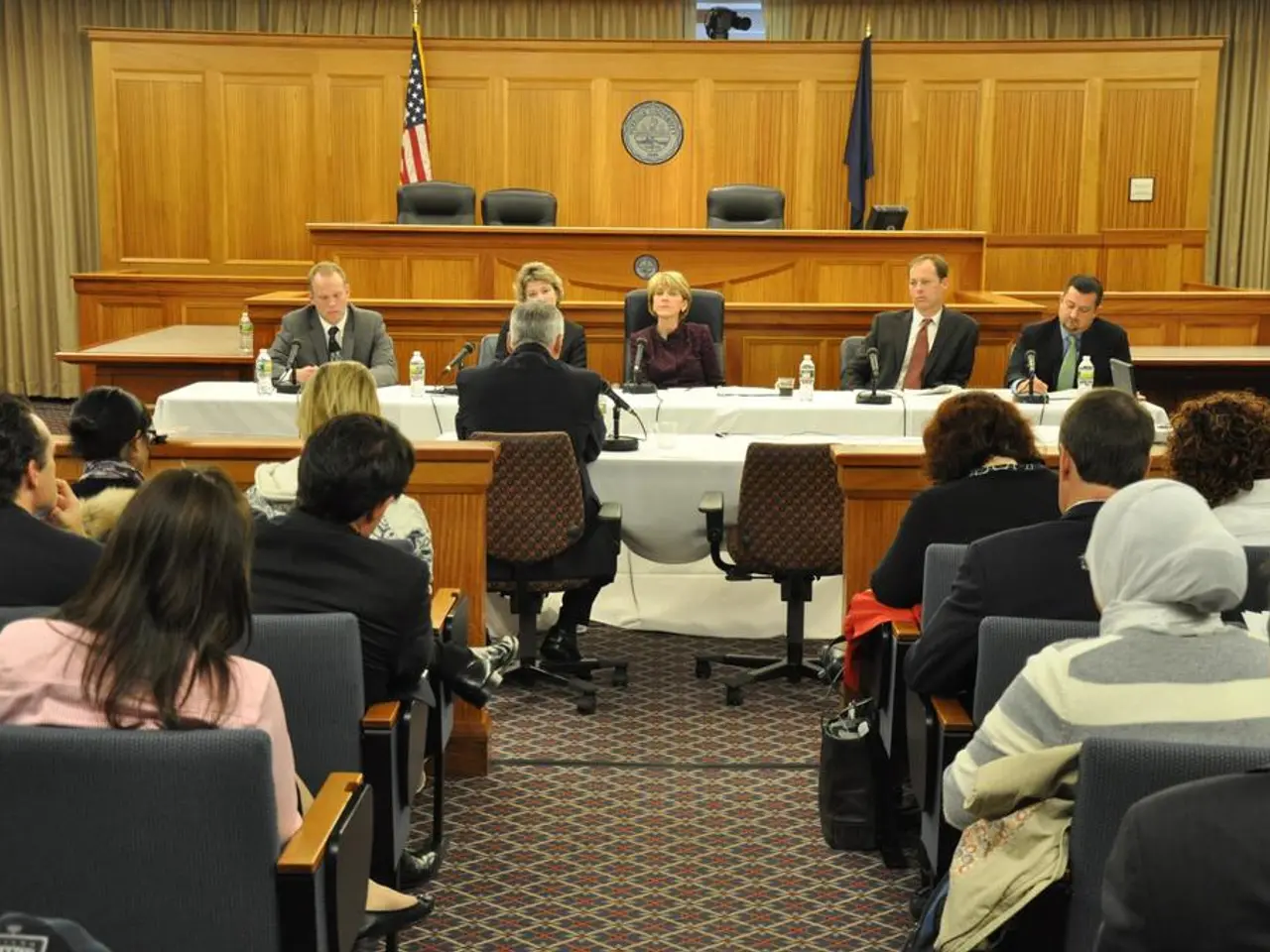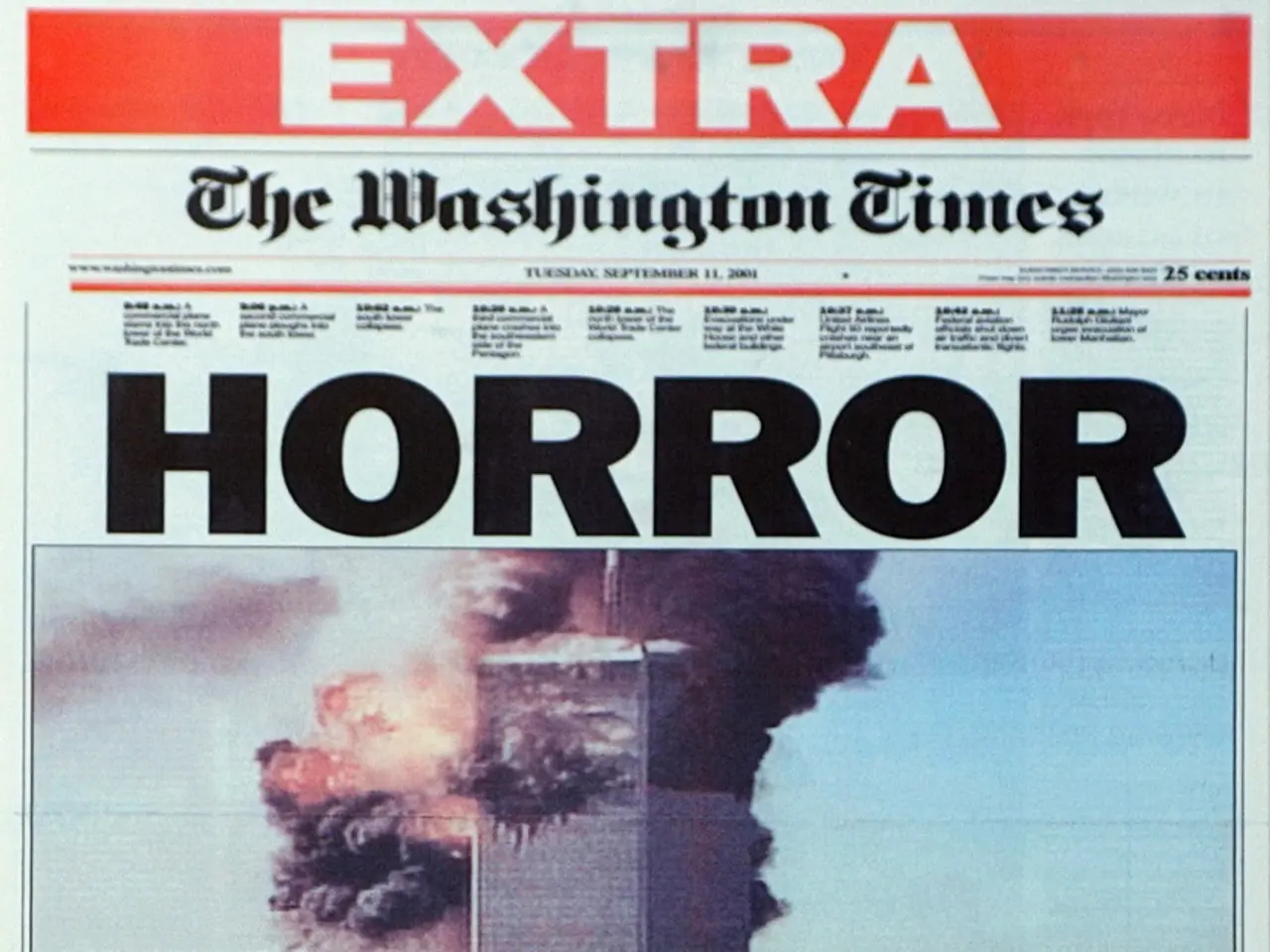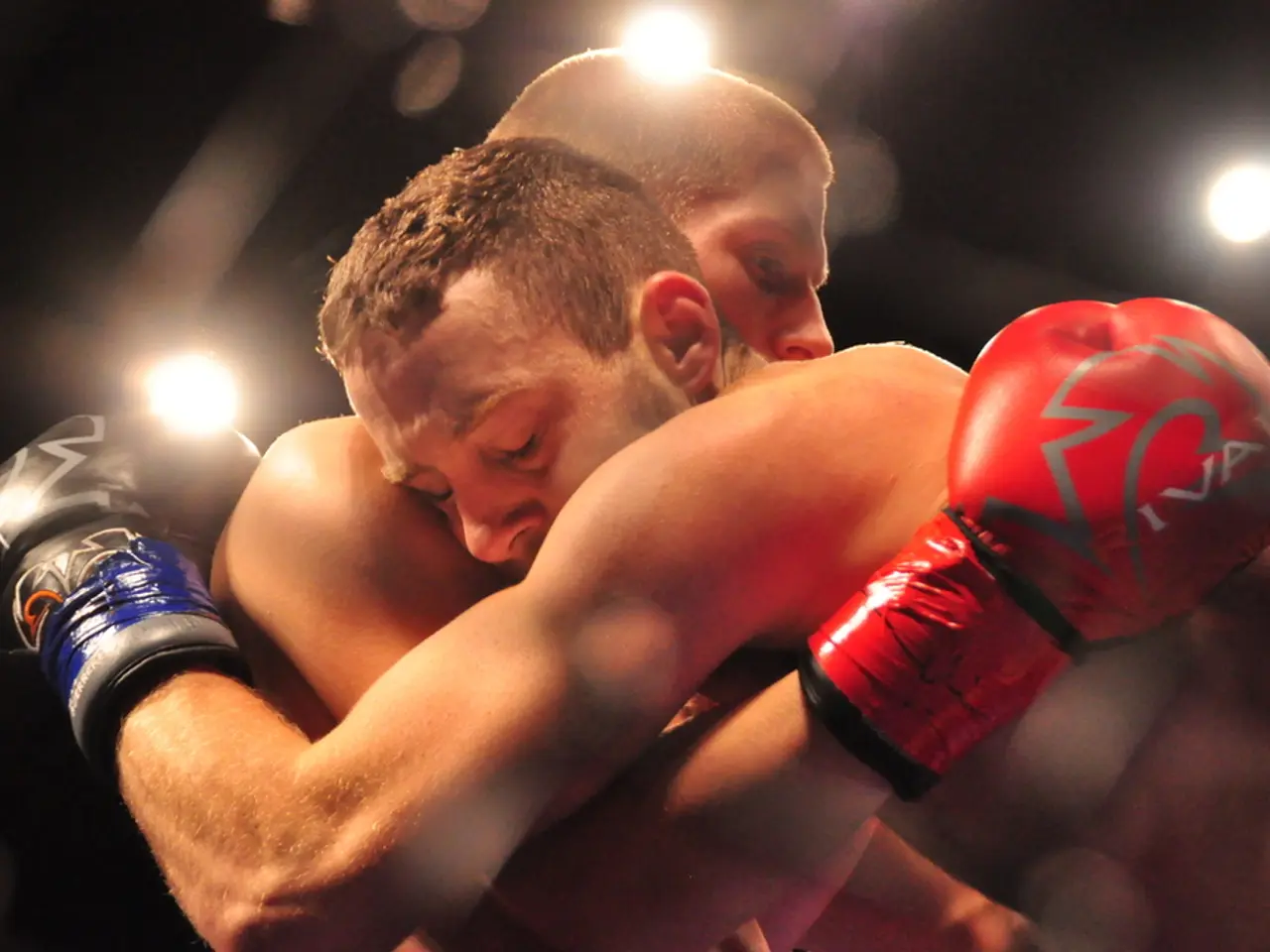Protests Erupt Among Congolese Residents Due to Exploitation of Natural Resources by Rwandans
In the heart of the Democratic Republic of Congo (DRC), the city of Goma continues to grapple with intense conflict, primarily involving the M23 rebel group. The situation escalated in January 2025, when M23 launched an offensive against Goma, leading to heavy bombardments, displacement of civilians, and the capture of parts of the city[1].
The M23 insurgents, who have been accused of having ties to Rwanda, have been capitalizing on the control of mining areas to finance their activities, perpetuating prolonged violence in eastern DRC's mineral-rich regions[3]. While Rwanda denies any support or connection to M23, the conflict's roots are partly rooted in ethnic and cross-border issues between the DRC and Rwanda[3].
Western countries have been engaged mainly through diplomatic pressure, humanitarian aid, and supporting UN peacekeeping missions like MONUSCO. Romanian mercenaries hired by the DRC government have provided training and security support in Goma[1]. The United Nations Security Council remains engaged through briefings and consultations on the situation, urging protection for civilians and freedom of movement for peacekeepers[2].
The mineral trade in eastern DRC, especially in North Kivu where Goma is located, is a critical driver of conflict. Rebel groups like M23 capitalize on control of mining areas to finance their activities, leading to prolonged violence. Conflicts over mineral resources, often including coltan, gold, and tin - metals used in making mobile phones and electric vehicles, including Teslas - fuel fighting as armed groups seek to control lucrative mines. This trade is linked to cross-border smuggling networks involving Rwanda and other countries, exacerbating instability in the region[1][3].
In recent times, protesters have been taking to the streets in Kinshasa, the capital, with schools forced to close due to the threat. On January 28, protesters attacked the Rwandan embassy and several other embassies believed to be engaging in illicit mineral trade with Rwanda, including the United States, France, Belgium, Uganda, and Kenya. The exact nature of the anger felt by the people in Congo towards the president of the DRC, Rwanda, and Western countries is not provided in the article[4].
As of Feb. 3, 2025, the M23 rebels have called for a ceasefire due to 'humanitarian reasons'. The fighting has resulted in the death of nearly 900 people and over 2,880 injuries, according to the UN[5]. Despite the ongoing challenges, efforts continue to be made to bring peace and stability to the city of Goma and the broader DRC region.
References: [1] https://www.reuters.com/world/africa/congo-goma-under-attack-as-m23-rebels-advance-2022-11-24/ [2] https://www.un.org/press/en/2025/sc14161.doc.htm [3] https://www.aljazeera.com/news/2025/3/1/rwanda-denies-support-to-m23-rebels-in-ongoing-conflict-in-drcongo [4] https://www.bbc.co.uk/news/world-africa-56818777 [5] https://www.un.org/press/en/2025/sc14161.doc.htm
- The government of the Democratic Republic of Congo (DRC) has hired Romanian mercenaries to provide training and security support in Goma, amid ongoing protests in the capital, Kinshasa, against the president and foreign governments, including Rwanda and Western countries.
- The M23 insurgents, while largely financed by the control of mineral-rich areas in eastern DRC, have called for a ceasefire due to 'humanitarian reasons', as the conflict, rooted in ethnic issues and cross-border smuggling, continues to displace civilians and cause significant casualties.
- The UN Security Council is urging protection for civilians and freedom of movement for peacekeepers, as protests persist over allegations that certain embassies, including those of Rwanda, the United States, France, Belgium, Uganda, and Kenya, are involved in illicit mineral trade, fuelling prolonged violence and instability in the region.
